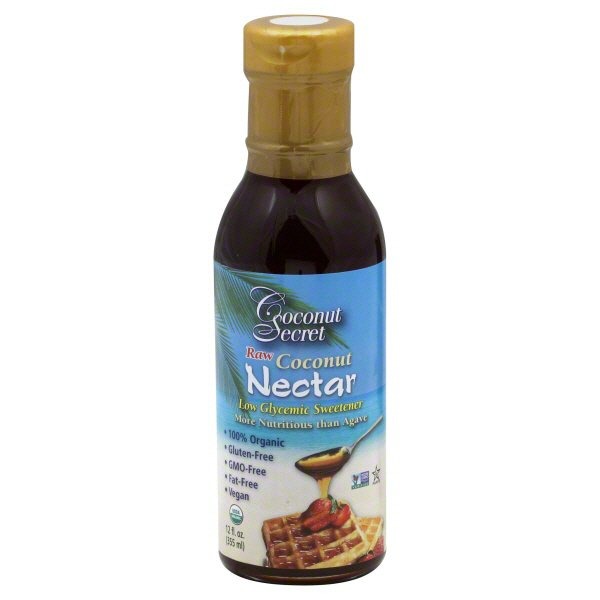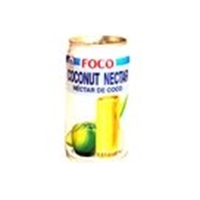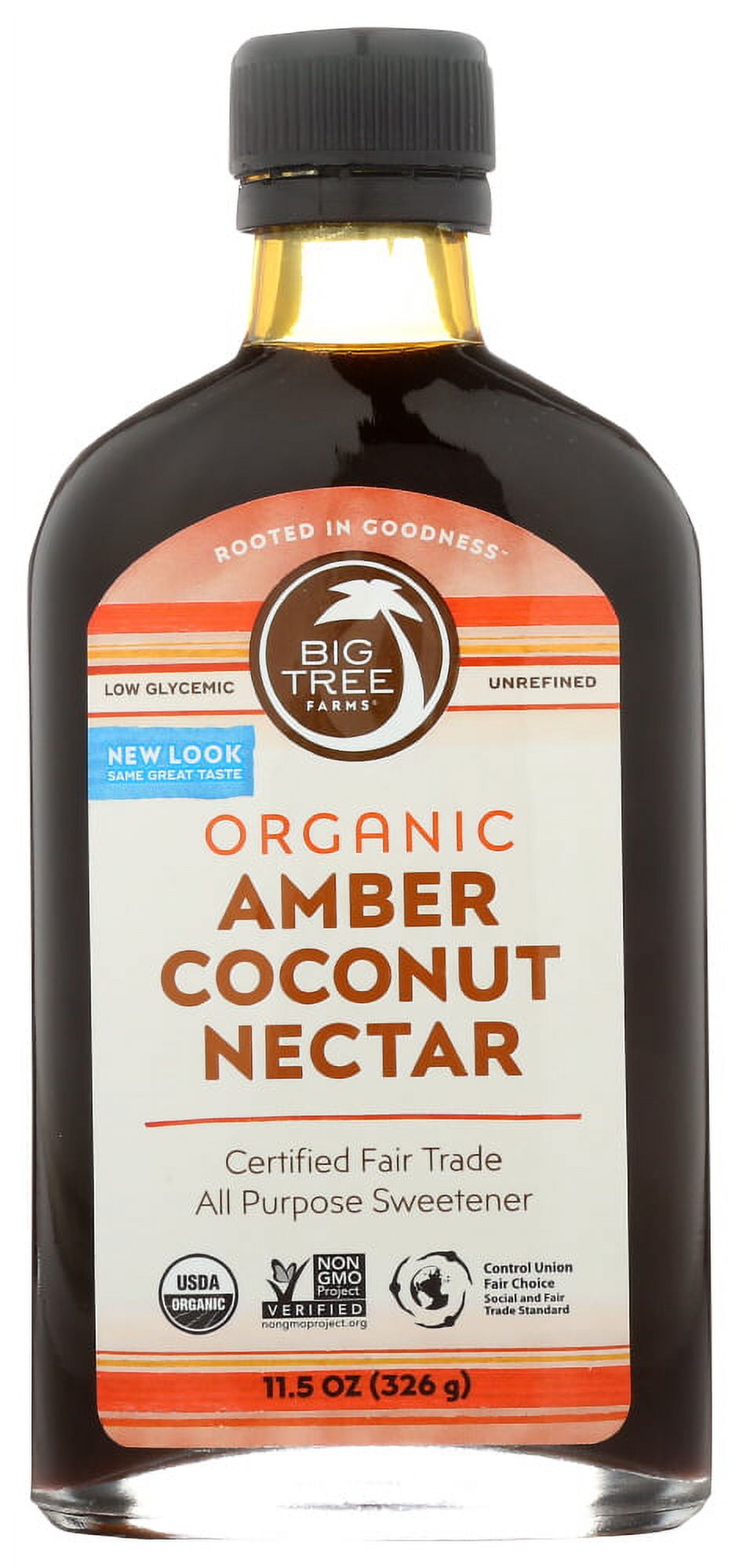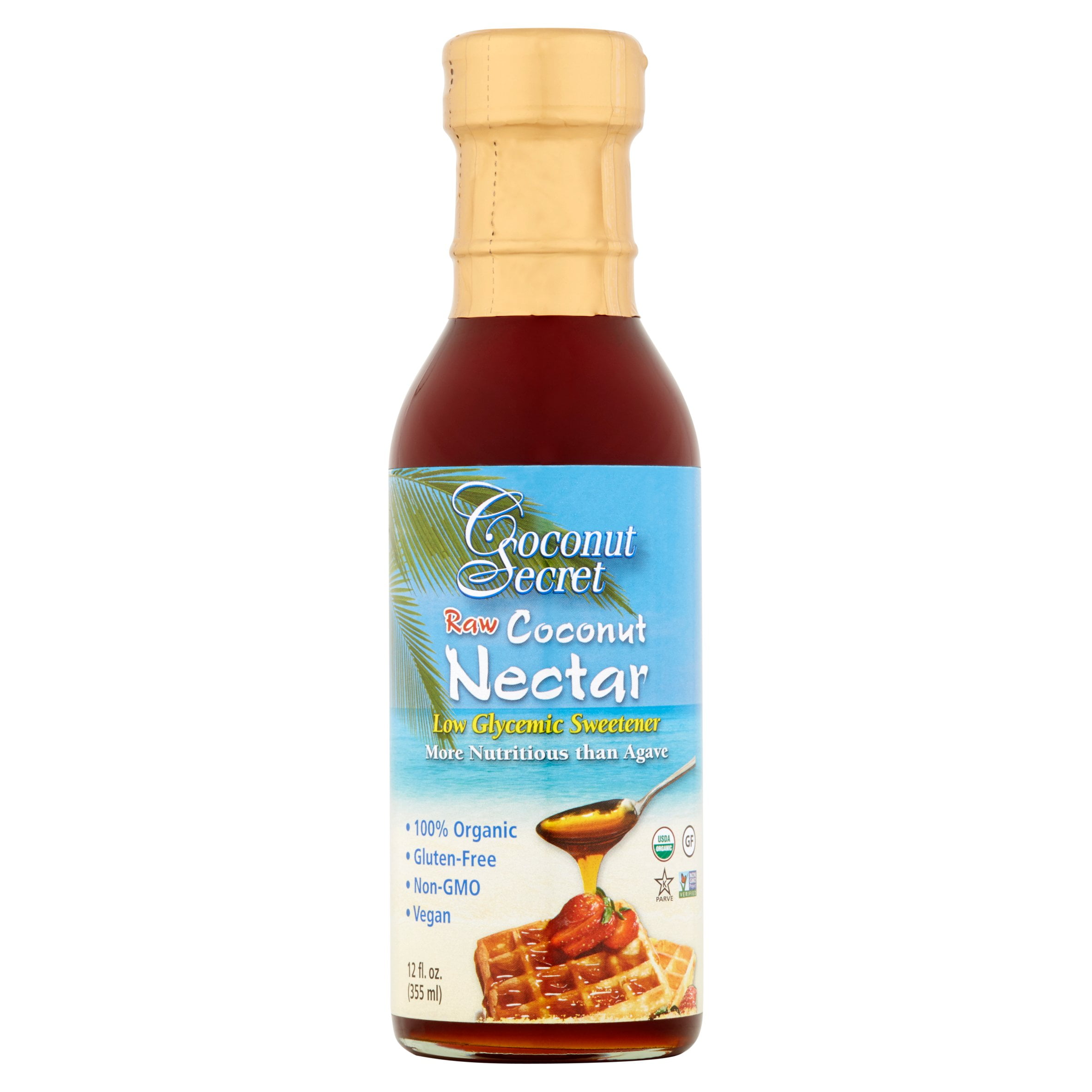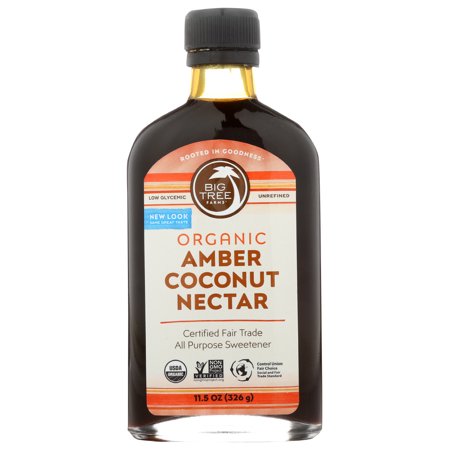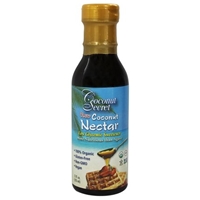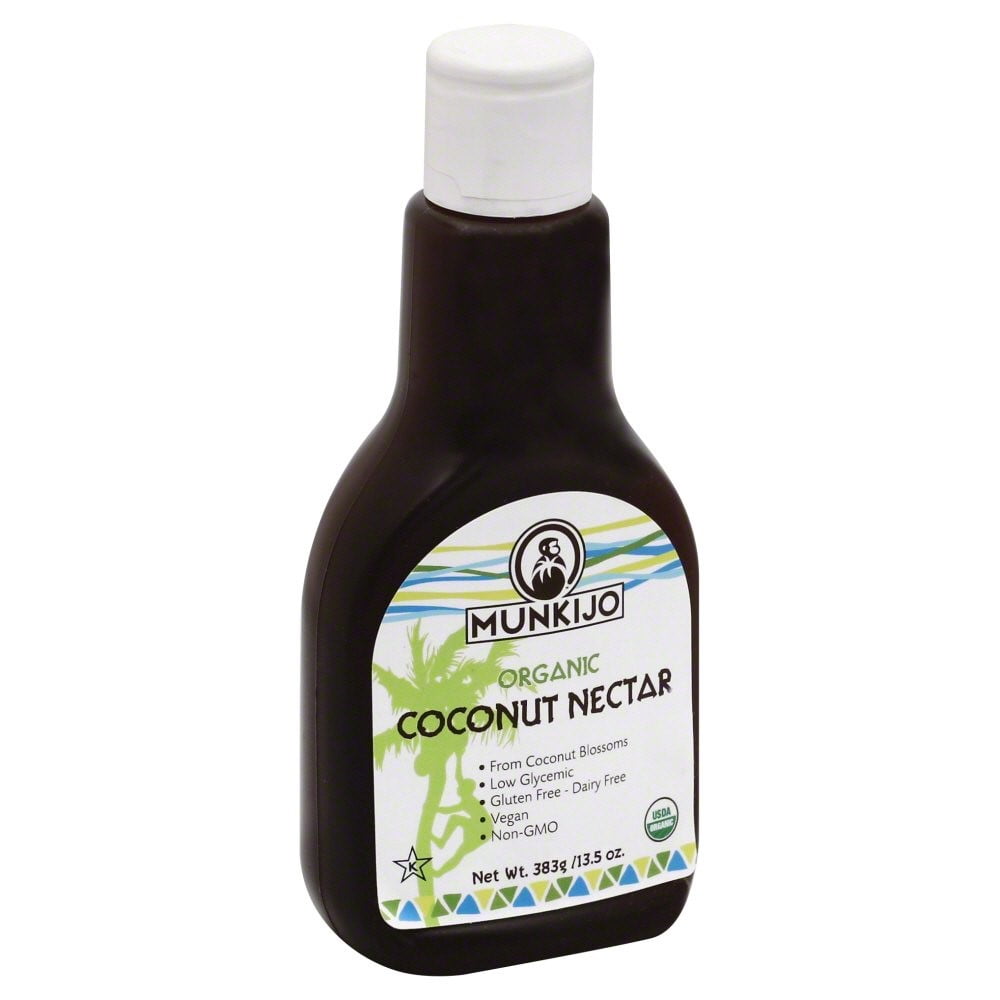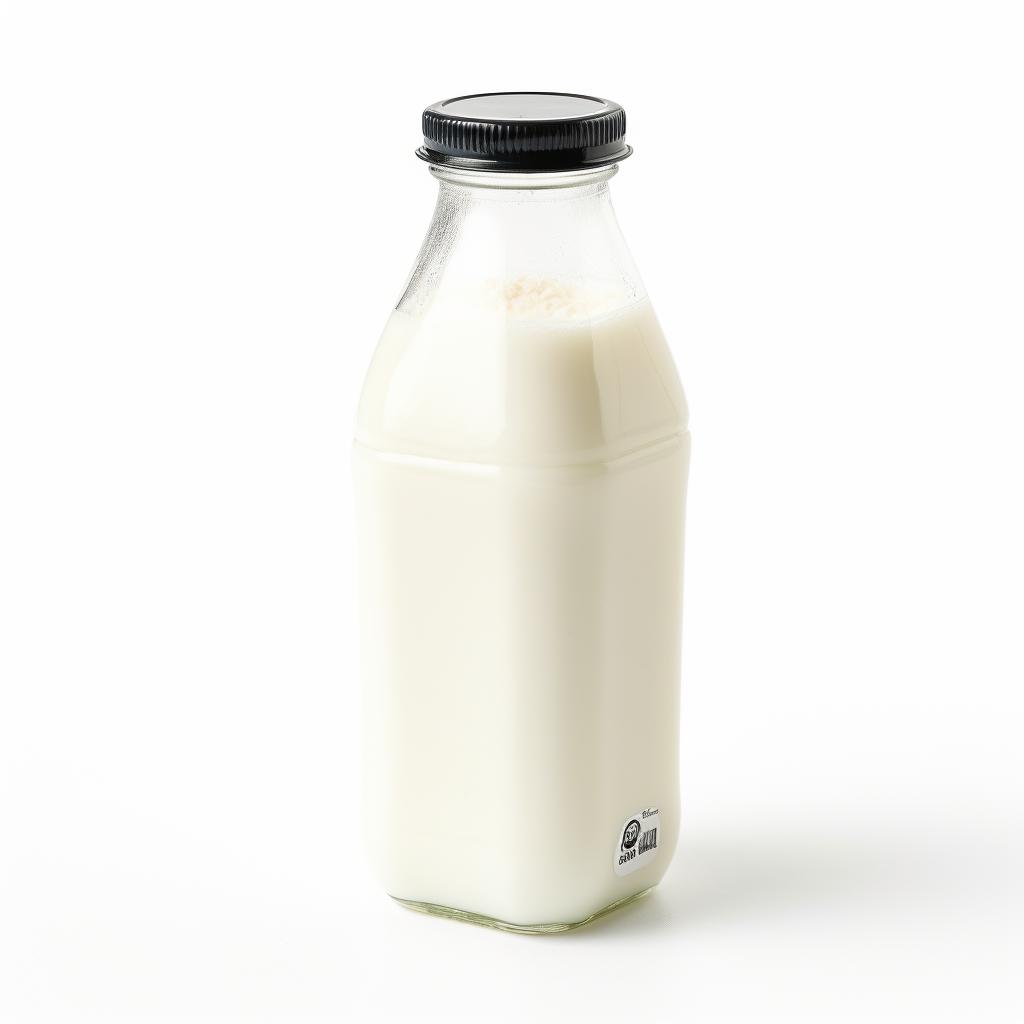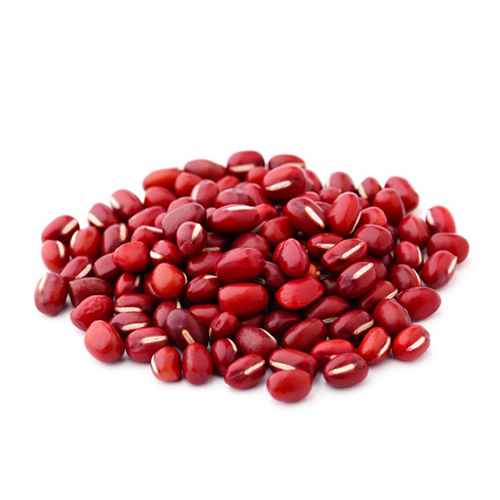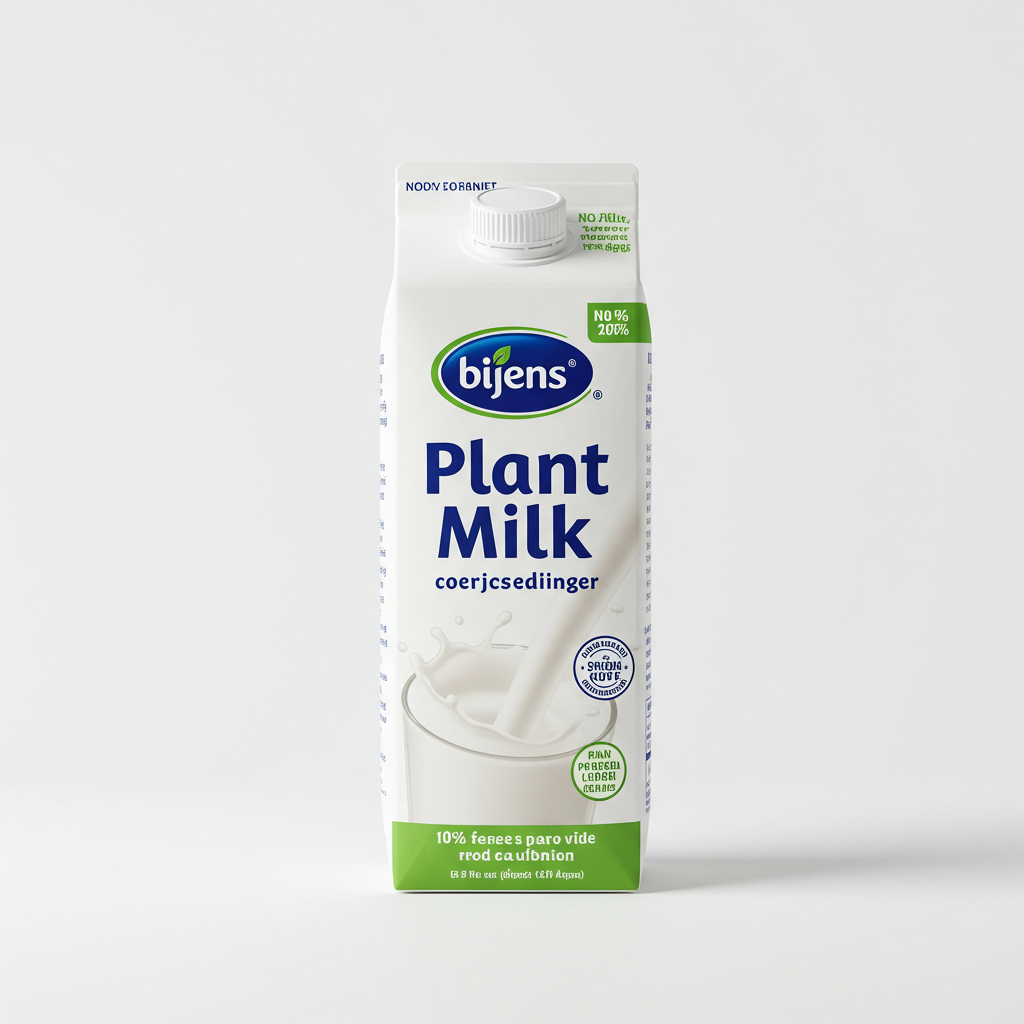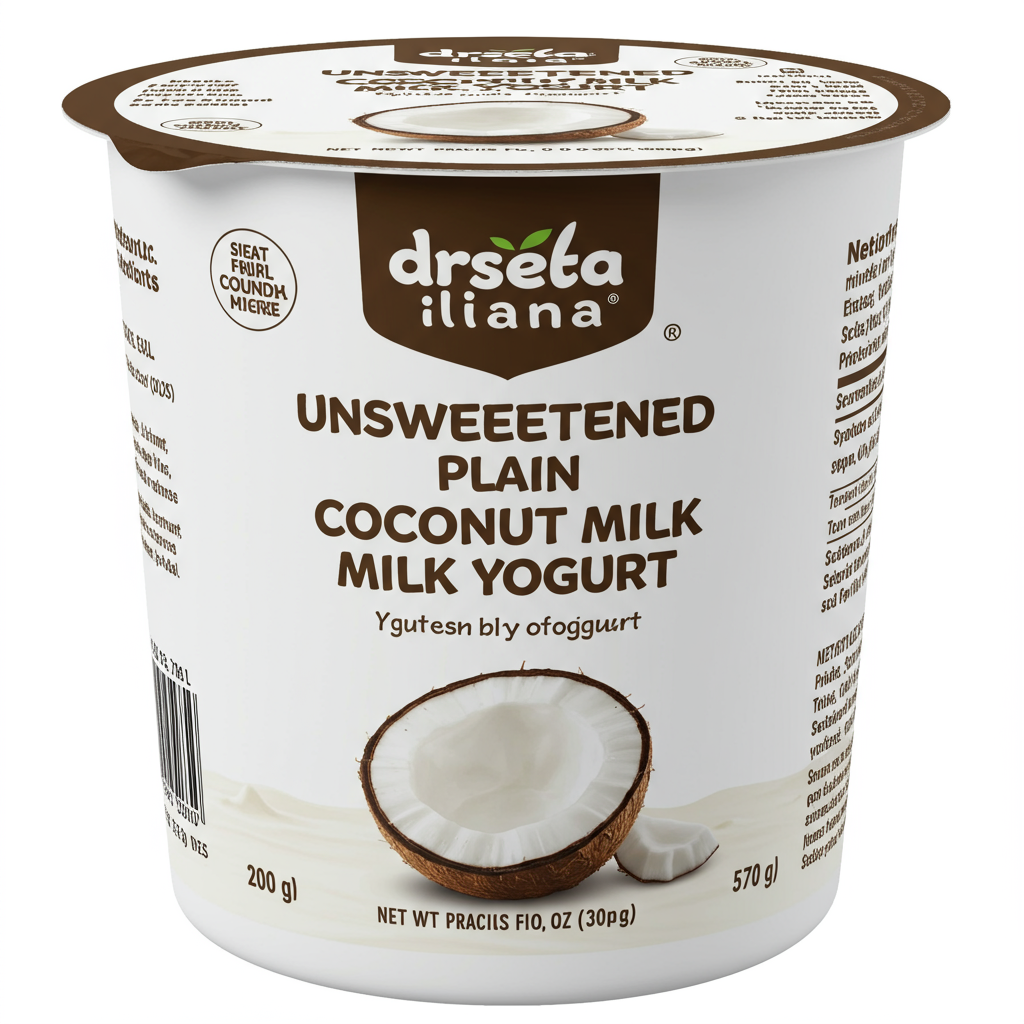DESSERTS
BREAKFAST AND BRUNCH
BEVERAGES
Coconut Nectar
Coconut nectar, also known as coconut syrup or coconut blossom syrup, is a natural sweetener derived from the sap of the coconut palm tree. Grown in tropical climates, this thick, amber-colored syrup boasts a unique flavor profile with hints of caramel and a subtle smoky aftertaste. In recent years, it has gained popularity as an alternative to other sweeteners, particularly for those seeking healthier and more sustainable choices.
Alongside its delightful taste, coconut nectar is praised for its low glycemic index and abundance of essential nutrients like potassium, magnesium, and zinc. The versatile syrup can be effortlessly used in various recipes as a topping for pancakes and waffles, an ingredient in baked goods, or a natural sweetener for beverages. Its nutritional profile and delicious flavor make it a popular choice for health-conscious consumers and food enthusiasts alike.
100%
CARBS
0%
FAT
0%
PROTEIN
28 Coconut Nectar Products
Coconut Secret Coconut Nectar - Natural, Low-Glycemic Liquid Sweetener, Agave Syrup Alternative - Organic, Vegan, Non-GMO, Gluten-Free, Kosher - 24 Servings
Coconut Nectar (Nectar De Coco / 99% Juice) - 11.8 Fl Oz (Pack Of 24)
R.W. Knudsen Coconut Nectar
Big Tree Farms Organic Coconut Nectar, Amber
Coconut Secret Coconut Nectar Raw Org
Big Tree Farms Organic Coconut Nectar, Amber, 11.5 Oz Bottle, Pack Of 6
Coconut Secret - Raw Coconut Nectar Low Glycemic Sweetener - 12 Oz.
Big Tree Farms Organic Coconut Nectar, Amber, 11.5 Ounce By Big Tree Farms
Munkijo Organic Coconut Nectar
Coconut Nectar
Coconut Nectar Is Frequently Used With
Coconut Nectar FAQ
Coconut nectar, with its unique flavor profile and natural sweetness, is a wonderful ingredient to use in a variety of dishes. However, people often go wrong by using it as a direct substitute for sugar without considering its liquid form and its distinct flavor. To get the most out of coconut nectar, it's essential to balance its rich, smoky taste with other flavors in your dish. Start by substituting it with half the amount of sugar in your recipes, and adjust it according to your preference.
Additionally, coconut nectar is a good source of essential nutrients like potassium, magnesium, and zinc. However, to fully reap these benefits, consuming it in moderation is key. Overindulgence may lead to excessive calorie intake as it's still a form of sugar. So, while it's a great option compared to refined sugar due to its low glycemic index, its usage should still be reasonable.
Little known fact: coconut nectar has a lower fructose content than many other natural sweeteners like agave syrup, making it a healthier choice for fructose-sensitive individuals. Hence, when seeking natural sweeteners, this is a very good option.
Can I use coconut nectar in place of sugar in my recipes?
Is coconut nectar healthier than honey and maple syrup?
How to use coconut nectar in my coffee?
Can coconut nectar replace maple syrup in recipes?
Is coconut nectar vegan and gluten-free?
Is coconut nectar suitable for diabetics?
Does coconut nectar taste like coconuts?
How to use coconut nectar in baking?
Can I use coconut nectar in my tea?
Can you eat coconut nectar raw?
Expiration & Storage Tips
When does coconut nectar expire?
Unopened coconut nectar can last up to two years if stored properly in a cool, dry place with a consistent temperature. Despite this, it’s always best to check the printed expiration date on the package before use. Once opened, coconut nectar should be used within three to six months for the best quality, although it might still be safe to consume thereafter. If you have the syrup in a homemade container, it’s generally best to use it within a few weeks. Despite being a natural product, coconut nectar doesn't typically handle freezing and thawing well.
How do you tell if coconut nectar is bad?
Spotting spoiled coconut nectar isn't complicated. Bad coconut nectar may change its color, leaning towards a darker shade than its typical honey-like hue. Its texture might also become thicker and it may crystallize, similar to old honey. Plus, if you notice any mold or an off smell, discard the product immediately. It's always better to err on the side of caution when it comes to food safety.
Tips for storing coconut nectar to extend shelf life
• Store your unopened coconut nectar in a cool, dark place to help maintain its freshness. Pantry cabinets away from heat sources are ideal.
• Once opened, seal your coconut nectar tightly. While it doesn't require refrigeration, keeping it in the fridge could extend its shelf life. Although, refrigeration might cause it to crystallize more quickly, this doesn’t influence the flavor or safety of the syrup.
• Avoid using wet or dirty utensils when dipping into your coconut nectar to prevent bacterial growth.
• If your coconut nectar has crystallized, place the sealed container in a bowl of hot water to restore its liquid consistency, just like honey.
EXPIRES WITHIN
16 - 24
MONTHS
Substitutes

Agave Nectar

Raw Honey

Brown Rice Syrup

Malt Syrup

Maple Syrup

Honey

Date Syrup

Clover Honey

Creamed Honey

Manuka Honey
See All
Health Info
Macros
18g
CARBS
0g
FAT
0g
PROTEIN
Allowed on these diets
LOW FAT
HIGH CALCIUM
VEGETARIAN
PALEO
MEDITERRANEAN
LOW CARB
VEGAN
LACTOSE FREE
GLUTEN FREE

